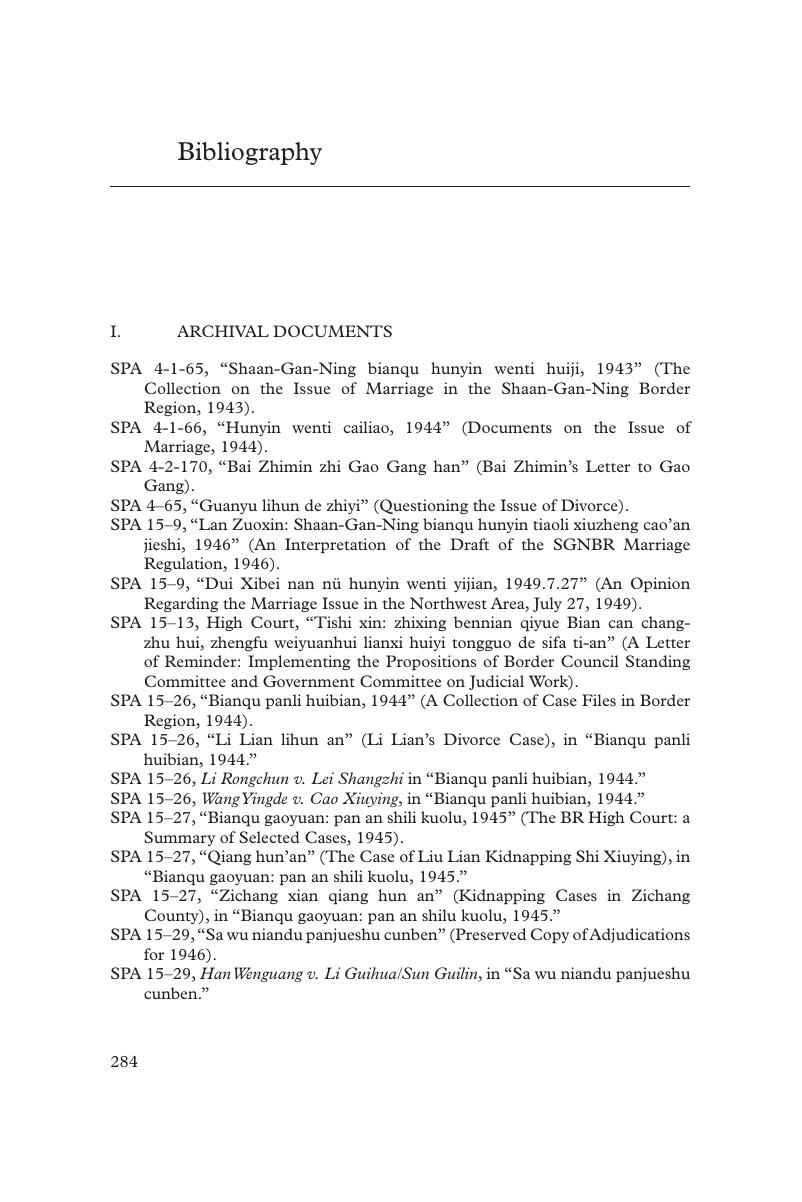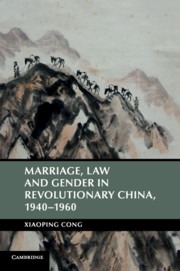Book contents
- Frontmatter
- Dedication
- Contents
- List of figures
- List of maps
- List of tables
- Acknowledgments
- Map
- Introduction
- Part I Locality, marriage practice, and women
- Part II Legal practice and new principle
- Part III Politics and gender in construction
- Epilogue: “Liu Qiao'er,” law, and zizhu : beyond 1960
- Bibliography
- Index
- References
Bibliography
Published online by Cambridge University Press: 05 September 2016
- Frontmatter
- Dedication
- Contents
- List of figures
- List of maps
- List of tables
- Acknowledgments
- Map
- Introduction
- Part I Locality, marriage practice, and women
- Part II Legal practice and new principle
- Part III Politics and gender in construction
- Epilogue: “Liu Qiao'er,” law, and zizhu : beyond 1960
- Bibliography
- Index
- References
Summary

- Type
- Chapter
- Information
- Marriage, Law and Gender in Revolutionary China, 1940–1960 , pp. 284 - 316Publisher: Cambridge University PressPrint publication year: 2016

